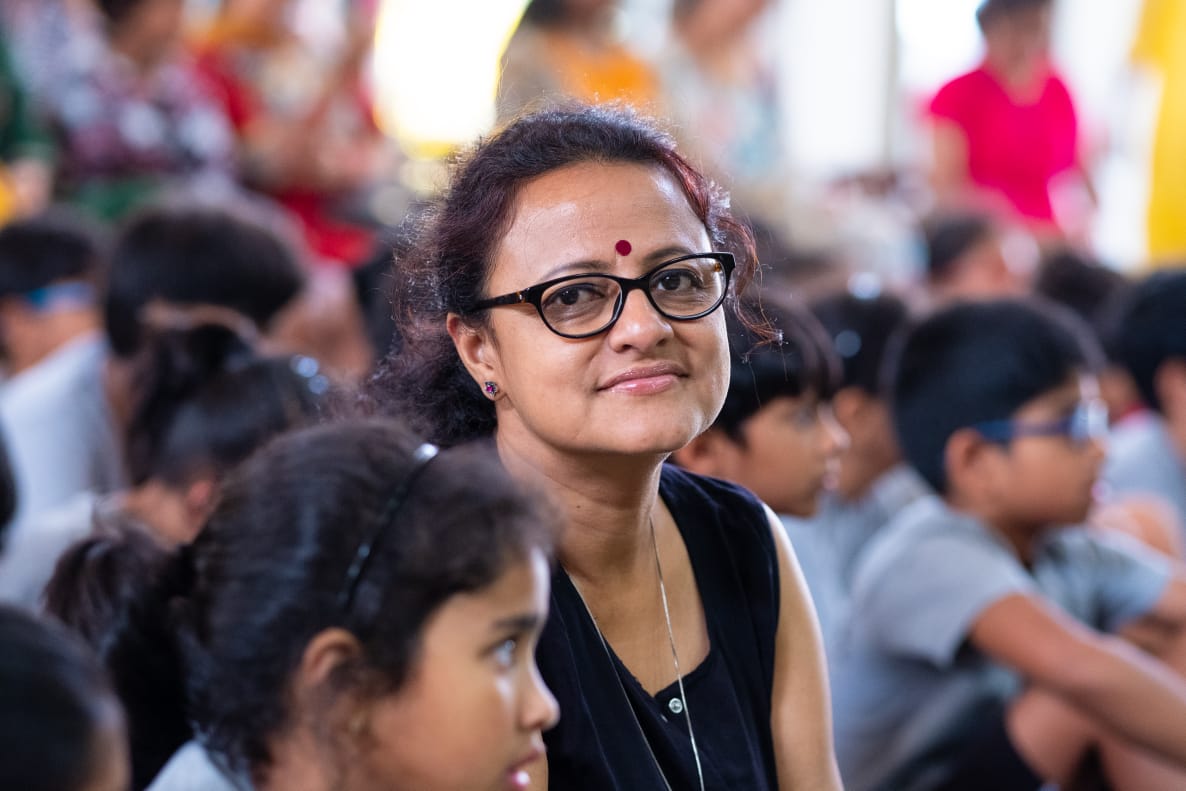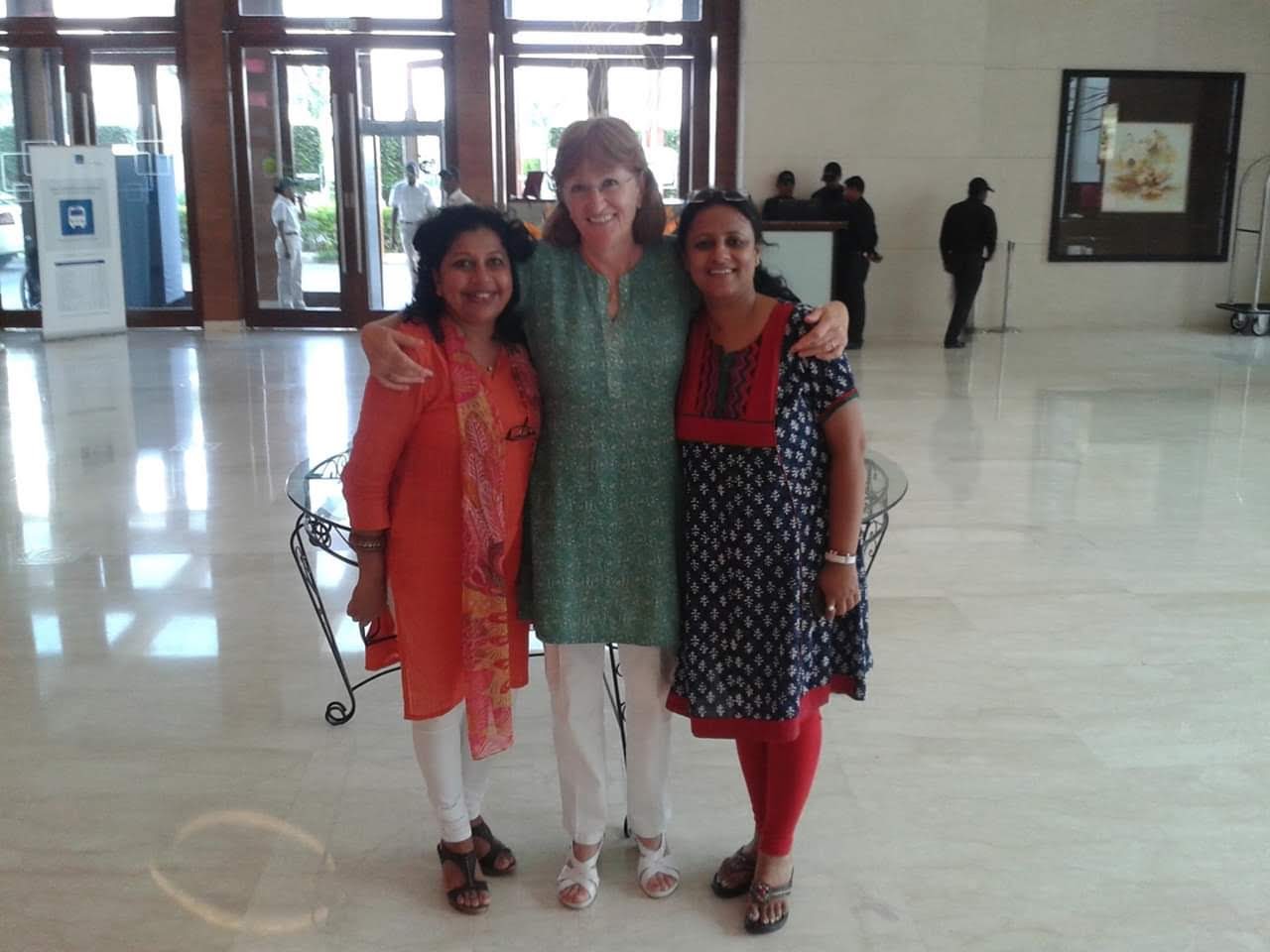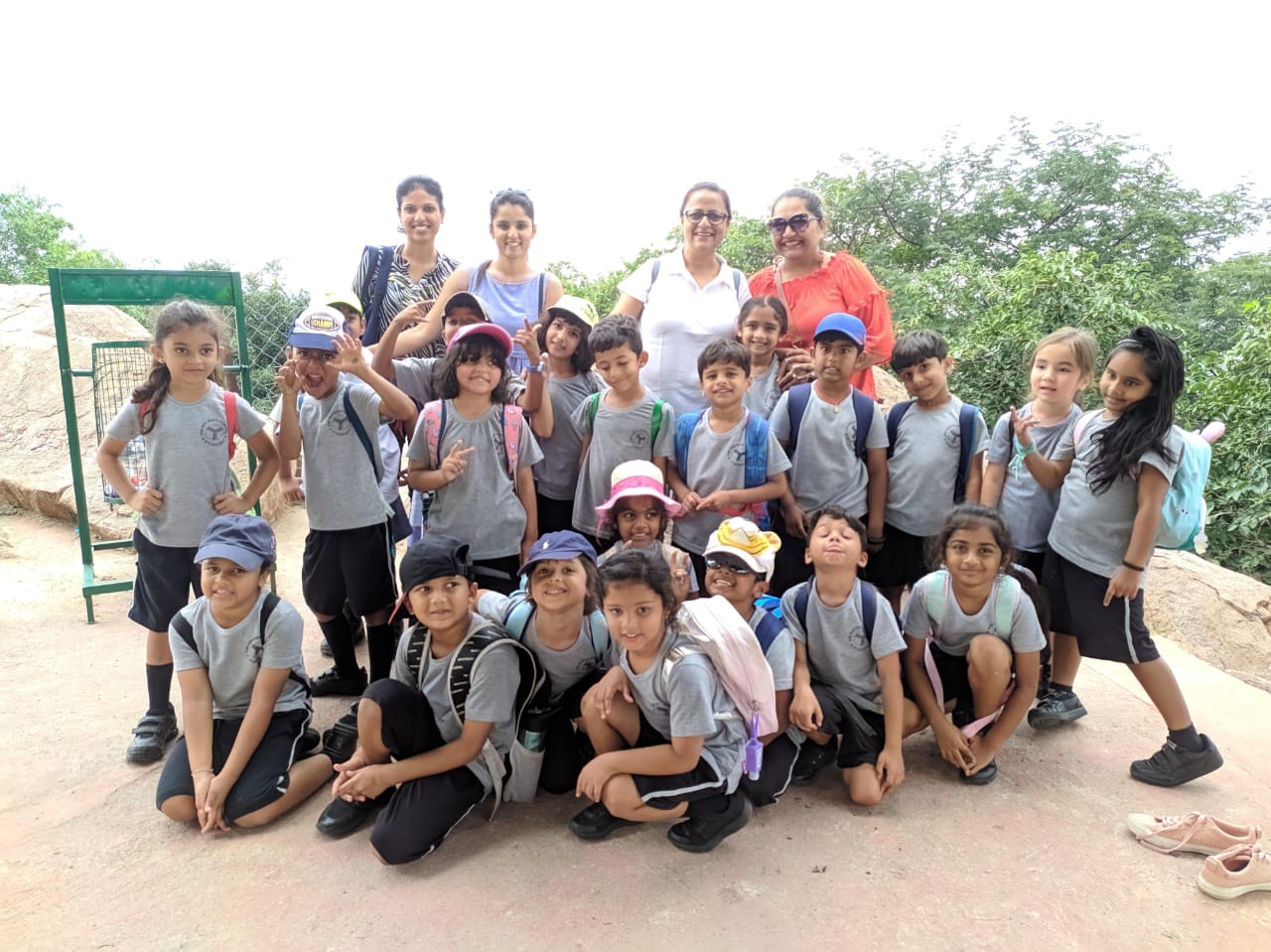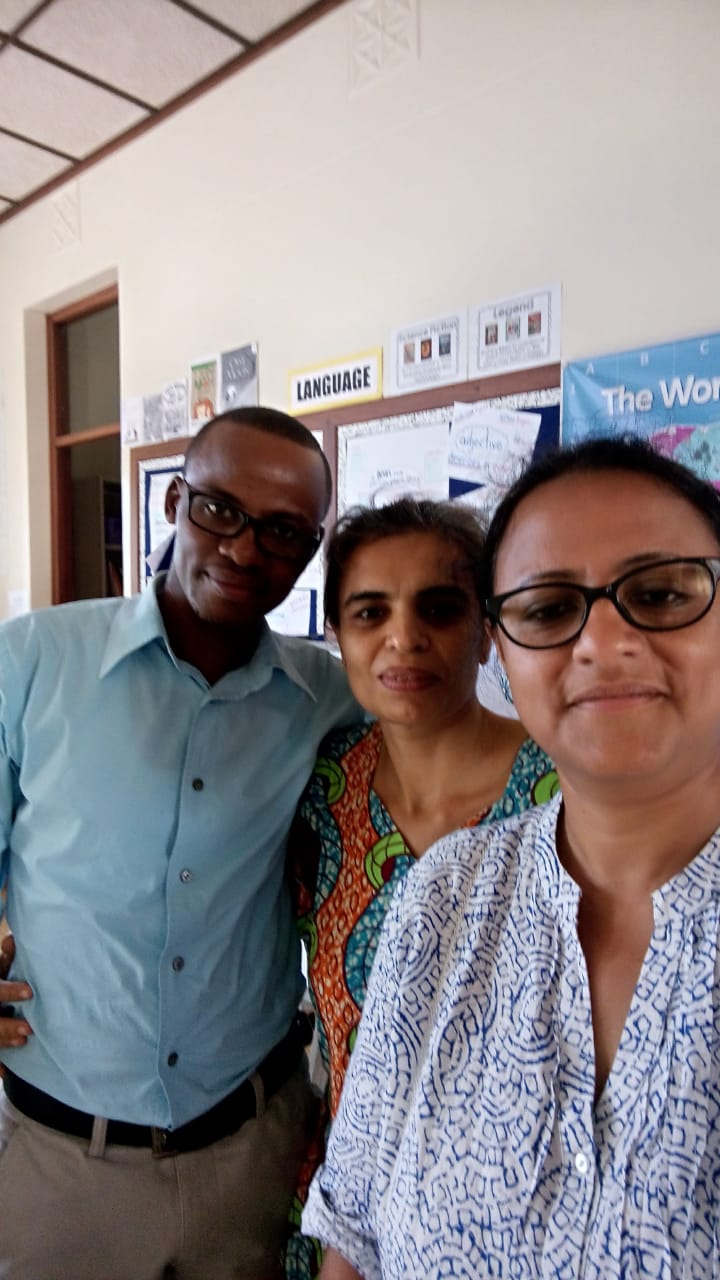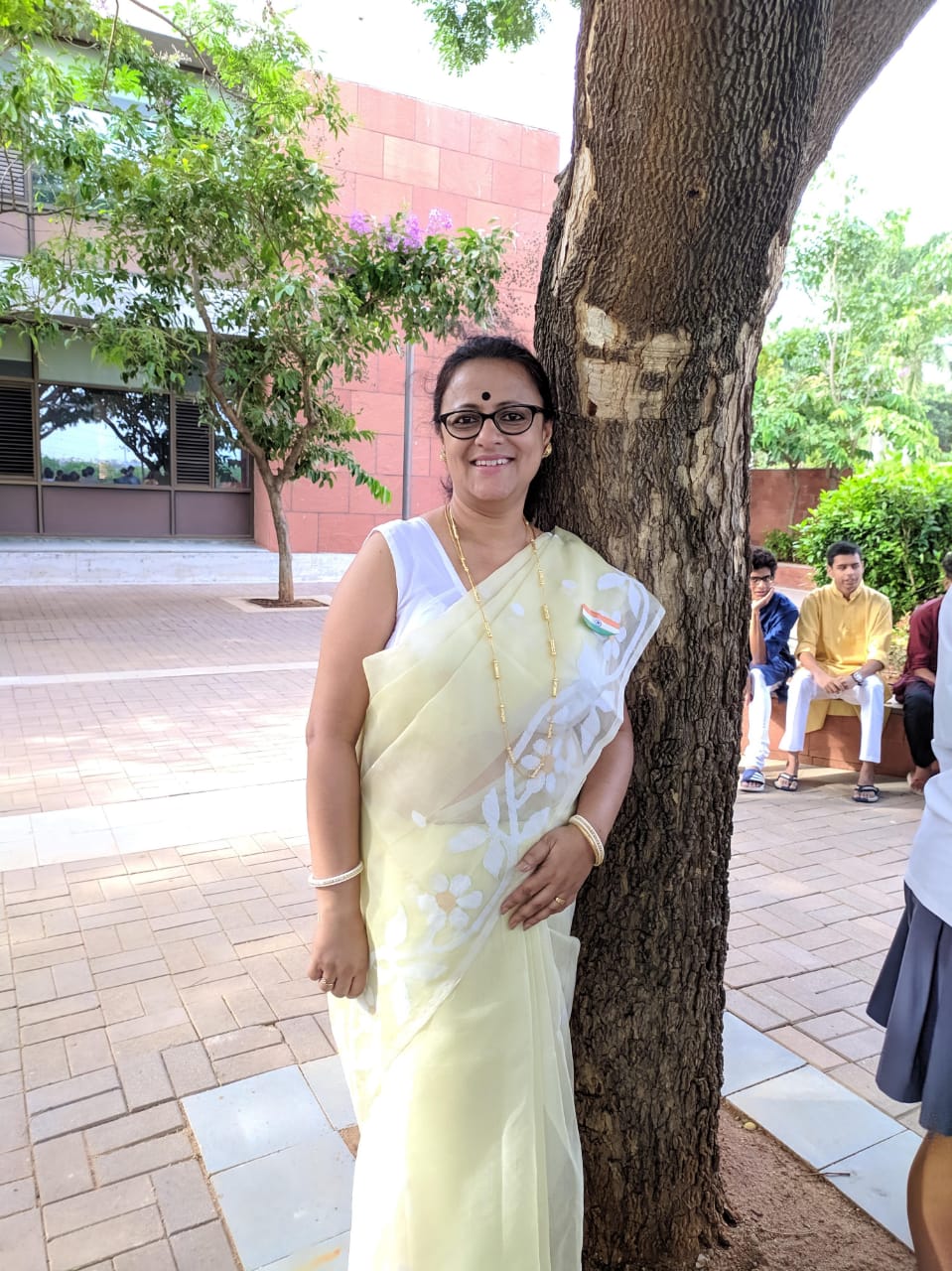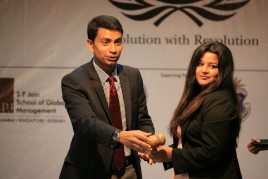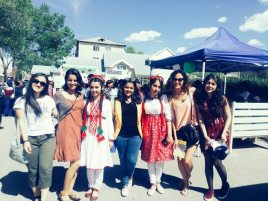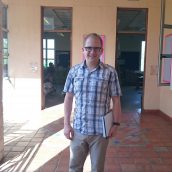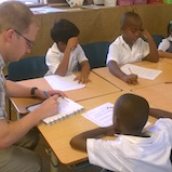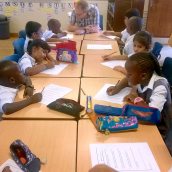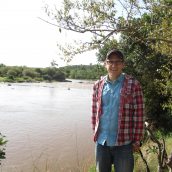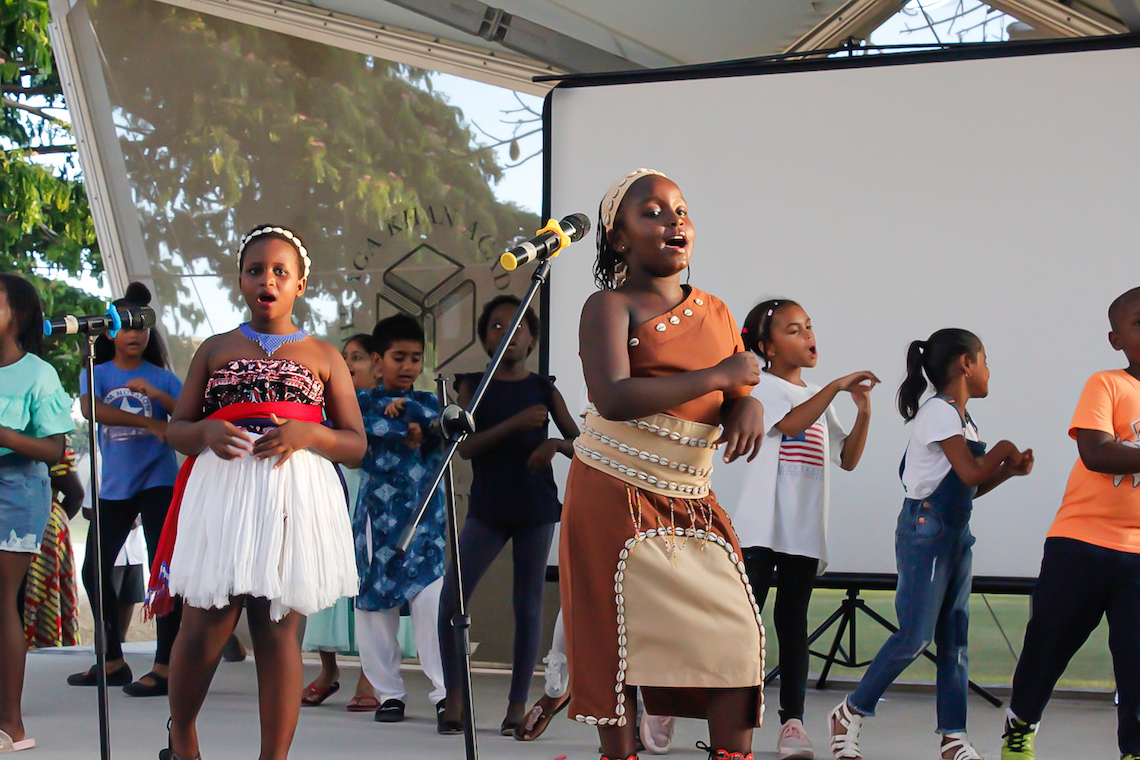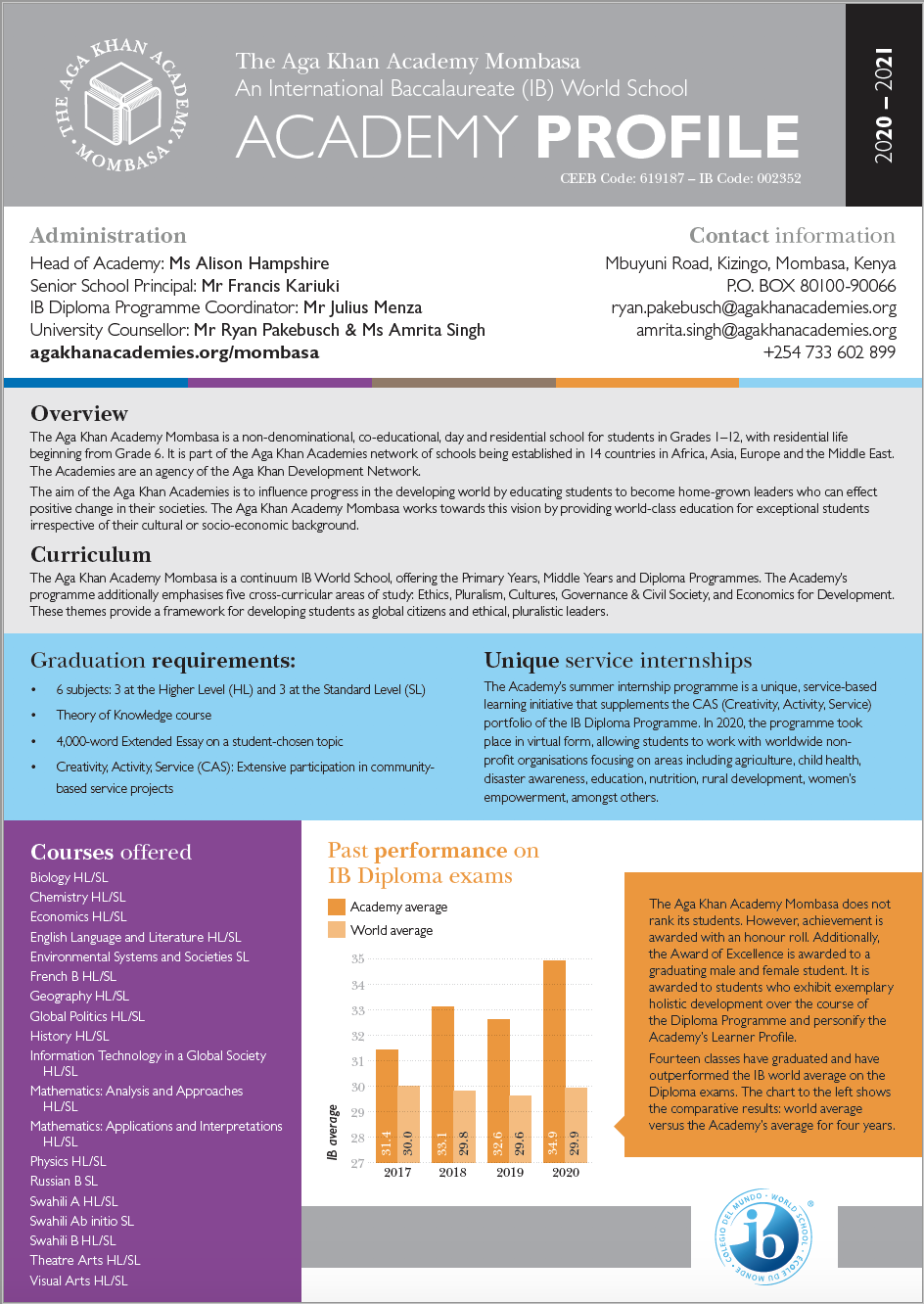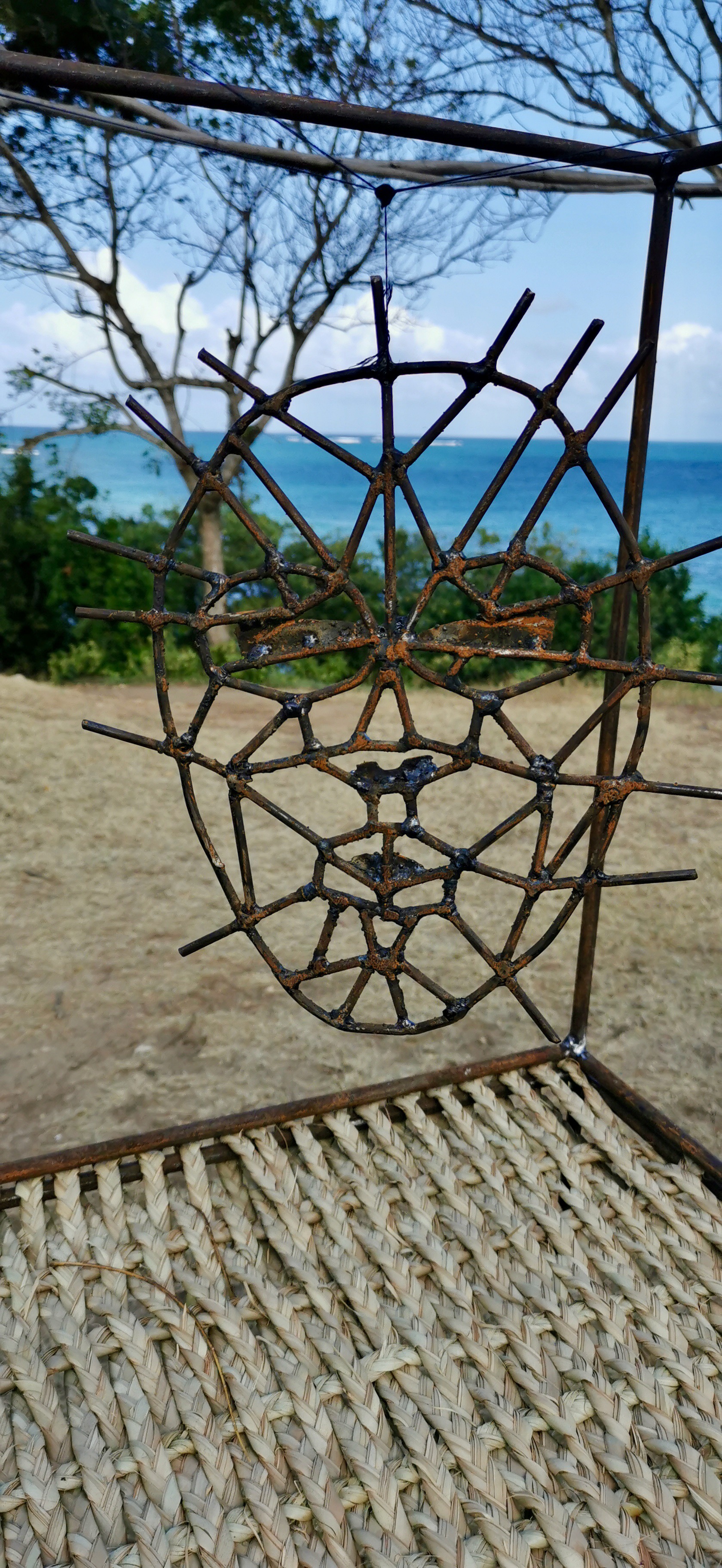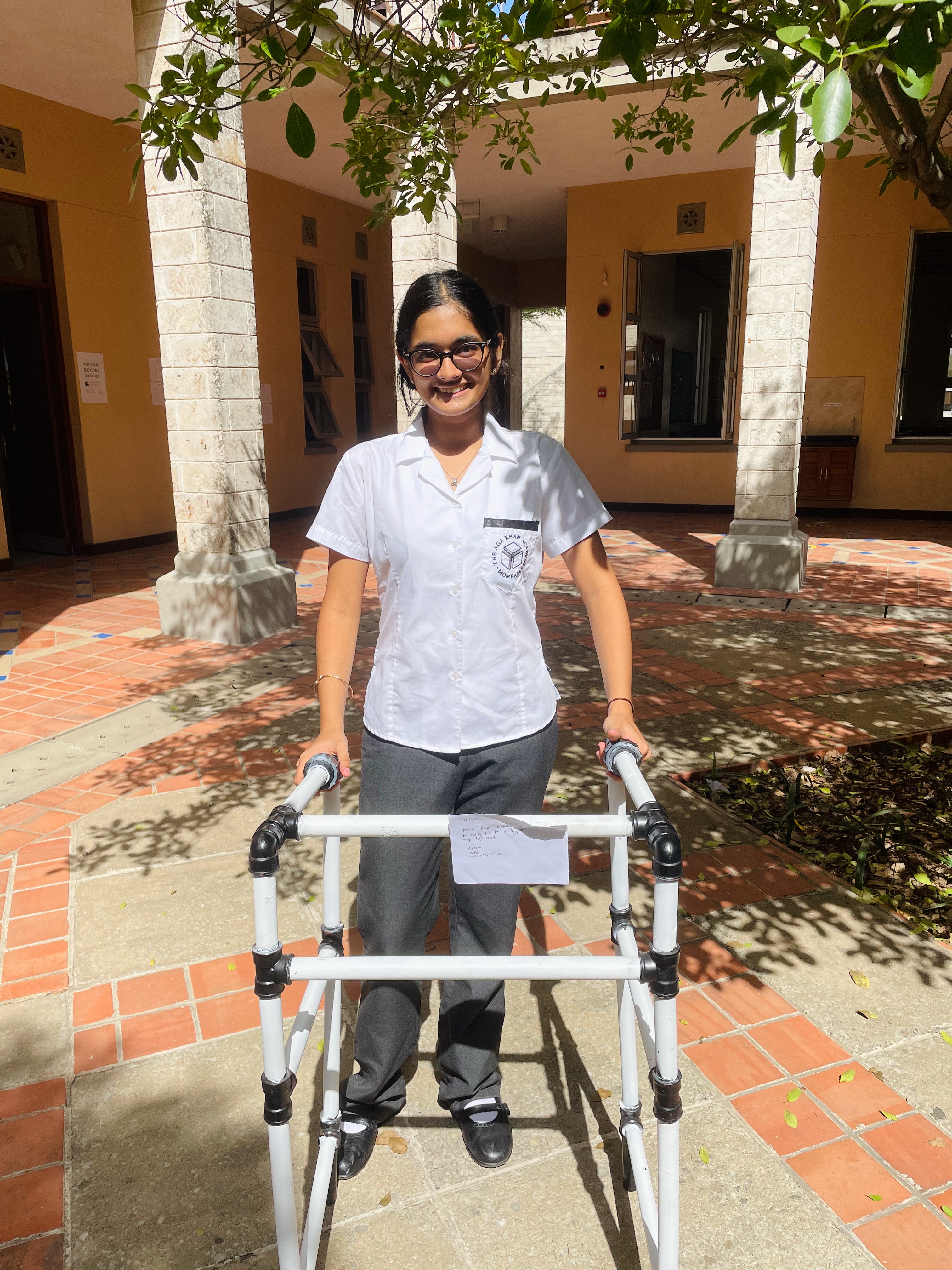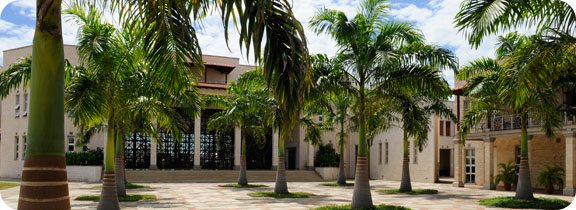
Our Campus
Built on an 18-acre (7.3 hectare) site in the Kizingo area of Mombasa, the Aga Khan Academy Mombasa is a state-of-the-art facility inspired by Swahili architecture.
Our school is the first of a network of about 18 planned Academies offering the highest international standard of education to students in countries across Africa, South and Central Asia, and the Middle East.
The campus has been specially designed by renowned architects and is purpose built. Our facilities include the following academic and resource areas:
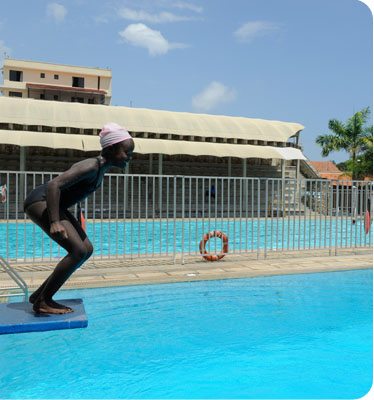
- Subject and age-specific classrooms
- Well-equipped science and computer laboratories
- Library and resource centres
- Art and music rooms
- Design and technology workshops
- Multipurpose hall
- Religion and culture room
- Career counselling facility.
The Commons building houses the dining hall and an array of spaces for school activities. It is designed to be the hub of student activity, serving as the Academy’s main space for major school functions, including music and drama performances and public lectures.
Sports facilities
Our sports facilities are extensive and include:
- Swimming and diving pools
- Sports fields, for example for soccer, hockey and athletics, including floodlight capacity for nightime matches
- Gymnasium for indoor sports such basketball, badminton, volleyball, gymnastics
- Tennis courts
Residential accommodation
Our residential facilities have been designed to house students and dorm parents (teachers who have been selected and trained to live in the faculty apartments in the student residences). Accommodation is available for Academy community members from both within the country and overseas, as well as for those visiting or on exchange from another Aga Khan Academy. Additional teachers' quarters on campus house both resident and visiting faculty along with their families.
We invite you to visit the Academy to take a tour of our beautiful campus.
Laboni Banerjee: cultivating community wherever she goes
Laboni was immediately attracted to AKA Hyderabad because of the vision and mission of His Highness the Aga Khan for the Aga Khan Academies. She found the values of the Academy to be more aligned with her own ethos than the school she was previously working at before joining the Academy.
“Over the course of 10 years at the Academy, I have found myself a part of a vibrant and caring community,” Laboni said.
When joining the Academy in 2010, Laboni recalls it being a much smaller school then, especially the International Baccalaureate (IB) Primary Years Programme (PYP). There were only seven PYP teachers and the Junior School principal at the time, Diana Smith who started the PYP at the Academy, along with Sreelatha Kumar, who was the PYP coordinator at the time and is now the Junior School principal. AKA Hyderabad received the Diploma Programme and Middle Years Programme authorisation in 2012 and 2013, respectively. The latter year is when Laboni remembers seeing notable growth in both students and faculty at the Academy.“Early years in the PYP were busy,” Laboni said. “During this time, I was also focusing on identifying myself as a member of the PYP team and growing with the school.
Over the course of her time at AKA Hyderabad, Laboni has taken on various roles. Along with being a Grade 3 teacher, Laboni took a role in the PYP reading and writing assessment in which she collected evidence and data. Laboni also helped with the Admissions Department and was responsible for checking the vocabulary of students applying to the Academy. Reflecting back, Laboni said she greatly appreciated this role because it allowed her to build a special relationship with parents and students from the very beginning of their Academy journey.
“While working with the Admissions Department I valued meeting a large number of people who were enthusiastic and eager to learn more about the PYP in the early years.”
From 2012–2014 Laboni helped with AKA Hyderabad’s Outreach Teacher Training programme, which is a core part of Academies’ Professional Development Centre (PDC) that trains local teachers around the community in various subject areas and enhances their pedagogical skills.
A few years ago, Laboni also had the opportunity to travel to the Aga Khan Academy in Mombasa, Kenya where she truly began to appreciate the pluralistic approach to education and diverse cultures and backgrounds the Academies values and emphasises. During her time in Mombasa, Laboni met Titus Mutemi, who was a recent graduate of the Teacher Preparation Programme – a programme provided by the Academies that trains teachers to become IB educators in their communities – and is now the PYP coordinator at AKA Mombasa. Laboni recalls Titus being filled with great enthusiasm and eagerness as he wanted to know everything about her class including the assessment techniques, books she has students read, any material created for the class and much more.
“Partnering with Laboni was such an enriching experience,” Titus said. “Her flexibility and open-mindedness made our collaboration easier and enjoyable. Years have gone by and yet her enthusiasm and unique way of engaging with the young learners is still memorable.”When AKA Hyderabad transitioned to online learning in March 2020 due to COVID-19, Laboni said there were a few challenges she faced but was able to overcome due to the support she received from the Academy.
“In the PYP we have always used technology as a learning and teaching tool. However, when we shifted to complete online teaching, building the bridge with new students I had never met before was the biggest challenge. With physical teaching, I was able to bond with my students on a personal level, but this changed with distance learning.
However, the Academy always supported me and made me feel comfortable working on a virtual platform with a new group of learners. Assigning me to be a part of various online professional development sessions was immense support as it helped me develop my understanding of the application of various teaching tools. The virtual learning and teaching also enabled me to look at my own teaching philosophy through a different lens and reimagine my teaching strategies. Now, it is my greatest joy and top priority to see my students online and have personal conversations with them.”Laboni said she cannot imagine her future without the Academy being a part of it. She is always involving herself in different roles throughout the Academy in order to connect with more students beyond the PYP and see how they turn their passions into reality. Laboni also said she is fortunate to be a part of a community that is continuously supportive and where she is encouraged to grow each day as an educator and individual.
“The greatest part about delivering education at the Academy and being a part of its community is that every day is a learning experience for me. I am always excited to see my students become open-minded young adults, chasing their greatest passions in life and thinking about how to make the world a better place for all.”
Khushboo Shah (Class of 2016): Using artistic talents to connect with others
Khushboo Shah is an aspiring writer, visual artist, and the current alumni representative of Aga Khan Academy Hyderabad 2016 batch. She is a recipient of The Aga Khan Youth Award for Excellence, and plans to begin her undergraduate studies this fall.
In August 2014, I migrated from my hometown Goa, India and traveled to the Aga Khan Academy (AKA) in Hyderabad to begin my International Baccalaureate education. In retrospect, AKA Hyderabad taught us all how to be independent in our own unique way. It strengthened my intellectual roots and taught me that it is okay to question. And because I questioned, I was able to learn.
At the Academy, I ardently loved studying English, history and visual arts – they groomed me to be a principled thinker and ethical person. The Academy under the vision of His Highness the Aga Khan does an excellent job of grooming each one of us to be a risk taker and a leader. Prior to joining the Academy, I was always interested in visual art, but I did not know how to pursue my passion. Under the apt guidance and encouragement from my art teachers, I learned how to weave my passion for history and literature into art. I also received an opportunity to present my artwork to the Premier of Ontario, the Honourable Kathleen Wynne, on her visit to the Academy in Hyderabad in early 2016. The Academy’s brilliant framework allows each individual student to pursue his/her inner talent and vision. I had always wanted to develop my writing and leadership skills, and I was able to do so by serving as the editor of the Academy’s 2014-2015 Yearbook. I also served as the elected Student Council President for the 2015-2016 year. Serving as an editor gave me confidence to take my writing seriously, while being a student leader allowed me to become a responsible and thoughtful individual.
In January 2017, I was awarded the Aga Khan Youth Award for Excellence, which has humbled me and allowed me to believe that with the right balance of determination, hard work and guidance, an individual can achieve immensely. I also serve as the alumni representative for the Class of 2016. I believe that because of the Academy’s presence in my life, I have truly been able to strive towards my goals. From April 2017 to June 2017, I interned at the Naryn campus of the University of Central Asia (UCA) in Kyrgyzstan. When I was in Kyrgyzstan, I experienced the overlapping of multiple cultures, faiths, nationalities, and ideologies. I was able to share meals and go trekking with more than eight nationalities at once! My circle now includes friends from Kazakhstan, Tajikistan, Kyrgyzstan, Pakistan, Afghanistan, Canada and the United States, making me extremely grateful for all my experiences and encounters.
At UCA, I was also required to assist with Student Life activities and other administrative work. Along with the University Counselor and other Student Life team members, I planned the cultural excursion to Lake Issyk Kul; and under the guidance of the Student Life team, I also organised the Hakuna Matata festival, which was organised partly on the Easter weekend as an arts and craft night, and as an Amazing Race all across Naryn town. Never before had Naryn seen such a race where the students were asked to complete tasks like building sand castles by the river, wearing traditional Kyrgyz clothing, competing against other teams over the game of foosball and conducting interviews with local people. All students were given a budget through which they had to complete their tasks. Students had to take cabs, the ‘mashrutka’ (local bus), or share a ride to reach into town. The race was a great experience as the students were not only challenged to try new things, they also learned to enjoy working collectively in teams. All the leadership qualities which I had acquired at AKA Hyderabad helped me to positively lead this activity. I believe that the Academy’s dynamic vision has allowed me to believe in my imagination, passion and curiosity while pursuing ambitious projects.
His Highness the Aga Khan emphasises that for one to become a global citizen, one must be multilingual. In Kyrgyzstan, I picked up some Russian, and thus was able to communicate a little with the local citizens – once on a taxi ride back from the local bazaar, a local lady whom I had never met before, moved me as she invited me to her house for lunch! That day I understood how by trying to speak the local language, I was not only learning a new skill, but was also breaking the barrier between myself and local citizens, and in a broader perspective – between two communities. Furthermore, on helping the UCA students to organize the first ever TEDxUniversityofCentralAsia, I truly understood the importance of embracing the diversity of different cultures as the event saw the coming together of over nine nationalities, and this collaboration truly humbled me.
When I look back at my Academy years, I often feel humbled and nostalgic. The time spent amidst those red bricked walls, with lovely friends and extremely supportive teachers has been one of the best times in my life. I have realised that an individual can continue to grow, learn and excel throughout their life. I am extremely grateful for the wonderful education I have received – it has been my sincere effort to try and improve in everything that I do by striving to become a more resilient and grounded person.
By Khushboo Shah
Sharing practice across oceans
Andrew Jones is a teacher from Ontario, Canada who has spent the past year at the Aga Khan Academy Mombasa, working with the Junior School as part of a teacher secondment partnership between the Aga Khan Academies and the Province of Ontario.
On first arriving at the Academy Andrew said, “I [am] expecting an enriching experience that will allow me to learn about another culture by being immersed in it. I expect to grow as an educator because different settings, both culturally and through the [International Baccalaureate] programme, will allow me to expand my skill set as to how best practices support student learning.” One year later, he reflects on his experience.
Almost two years ago now, I was reading the book, Everyone Can Learn to Ride a Bicycle, by Chris Raschka to my new grade one class in Kitchener, Ontario, Canada. This book helps me encourage my students at the start of the year to continue developing resiliency through adopting a growth mindset by trying new things, taking risks and reflecting on both successes and mistakes. Little did I know, I was not just teaching my students this skill, but I was also going to follow this advice myself.
Ever since I began teaching almost 10 years ago, many changes in my job assignment have sparked a passion for professional learning and development in my teaching practice. Over this year, I have immensely enjoyed this new job working for the Ministry of Education in Ontario on an educational partnership between our government and the Aga Khan Academy Mombasa. I have had the opportunity to grow and learn as both an educator and an individual through my interactions at the Academy and through daily life in Mombasa.
Working at the Aga Khan Academy Mombasa has been an immense opportunity of both professional and personal learning that I am thankful for. I ask myself this very question, “What best teaching practices am I learning about that I should share with Ontario teachers?”
Here are three that I have learned more about since being here.
Building Confident Leaders – Students build their confidence and exude enthusiasm as they try new things and take risks during their participation in a variety of classroom activities, sports galas, enrichment opportunities and Friday assemblies. Students are confident, have strong leadership skills and advocate for equity. Confidence stands out as a defining characteristic of the learners present here in the Junior School.
Promoting Pluralistic Thinking – The Junior School’s demographic is vibrant and diverse, reflective of the Mombasa community’s cultures, religions and backgrounds. Activities at the school, such as the Arts Week performance, continually emphasise appreciation and understanding toward different views and beliefs and encourage students to think pluralistically as they work together.
Dual Language Practices – I have been learning Kiswahili “pole pole” this past year, and I am quite experienced in giving directions to tuk tuks and boda bodas. As I learn a new language, it helps me think about the world in different ways and makes me more pluralistic in my thinking. Likewise, students at the Academy develop academic competency and fluency in both the national language of Kenya, Kiswahili, and the official language of Kenya, English. Additionally, learning similar concepts in two languages allows students to develop pluralistic view points as languages sometimes look at similar ideas in different ways.
I am thankful to explore Kenya’s beauty and diversity, so far from Mount Kenya to the Masai Mara to Mombasa. I continue to grow and to learn and am thankful to the kind and generous Mombasa community that has made my transition to working at the Academy warm and welcoming. I feel very privileged to be working with such a dedicated and caring staff and with phenomenal students.
By Andrew Jones
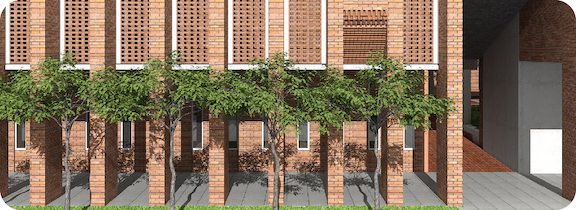
Living on Campus
Residential life at the Academy complements and extends the academic experience. Our residential programme includes a broad selection of activities and leadership opportunities to enhance students’ learning and growth.
The Academy’s residences include facilities to accommodate both students and teachers. Our residences house boarding students requiring accommodation as well as those participating in international exchanges between the Aga Khan Academy Dhaka and other Academies and schools.
Teachers' quarters on campus house both resident and visiting faculty.
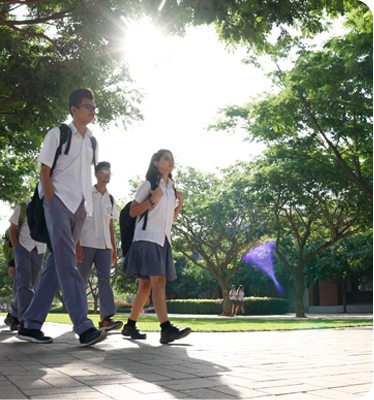 Learning beyond the classroom
Learning beyond the classroom
Our residential programme is about the learning and growth that comes through constant interaction with a diverse and talented group of teachers and peers.
Mealtimes and other gatherings provide our residential students with opportunities for informal interaction as well as for discussions, meetings, language tables and study groups.
The focus of the residential experience is on students’ intellectual, social, spiritual and physical growth in a structured and ethical environment. Many of the least tangible but most important elements of an education – the development of practical leadership skills, the capacity to make ethical judgments, the ability to navigate through complex cultural settings – are formed outside the classroom.
The safe and secure environment of the Academy’s boarding facilities gives students of all backgrounds the opportunity to thrive emotionally, intellectually and physically.
